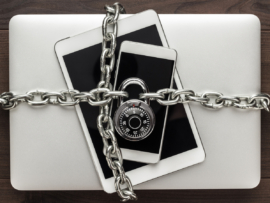
The UK government wants Apple to hand over the personal data of its British users. This could be seen as a compromise after it dropped its request for all iCloud users’ data amid US backlash.
The Home Office has issued a new order that would give it the right to demand access to the data of its citizens, according to the BBC. It would be exercised in cases involving national security risks and would require a warrant.
Back in February, reports surfaced that the UK’s Home Secretary had invoked a Technical Capability Notice seeking a backdoor into encrypted iCloud worldwide, including files covered by Advanced Data Protection. Data stored under ADP offers the highest level of protection the company provides, keeping information hidden even from Apple itself.
A Technical Capability Notice gives law enforcement the power to compel companies to provide access to data during investigations while barring them from publicly disclosing such requests. Apple responded by disabling access to ADP encryption for iPhones, iPads, and Macs registered in the UK.
“We have never built a backdoor or master key to any of our products or services and we never will,” an Apple spokesperson told TechRepublic at the time. US President Donald Trump also disparaged the order, referring to it as something “that you hear about with China,” according to The Spectator.
The following month, senior UK officials privately told their US counterparts that the request for access to encrypted iCloud data was limited to information tied to individuals already implicated in crimes such as terrorism, and not a sweeping demand to access anyone’s data under any circumstances.
Despite those assurances, Apple appealed the UK’s order at the Investigatory Powers Tribunal, arguing that compliance would jeopardise user privacy and set a dangerous precedent. Technically, affected parties cannot publicly comment on the existence of a Technical Capability Notice, as doing so might undermine ongoing security investigations.
However, in April, a judge ruled that the basic details of Apple’s appeal did not have to be kept secret because they would not harm national security. But, before that appeal could take place, and after months of discussion with the US government, the UK reportedly withdrew its demand for the backdoor.
“The UK has agreed to drop its mandate for Apple to provide a ‘back door’ that would have enabled access to the protected encrypted data of American citizens and encroached on our civil liberties,” US Director of National Intelligence Tulsi Gabbard wrote on X at the time.
Apple has still not formally restored ADP in the UK, despite some users still retaining access from before it was disabled, according to the BBC. The Home Office refused to confirm or deny the existence of a new UK-specific Technical Capability Notice when asked by the media outlet.
“The new order may be just as big a threat to worldwide security and privacy as the old one,” Privacy International, a UK charity that advocates for digital rights, said in a statement. “If Apple breaks end-to-end encryption for the UK, it breaks it for everyone.
“The resulting vulnerability can be exploited by hostile states, criminals and other bad actors the world over.”
Apple is calling on the EU to repeal its Digital Markets Act, arguing that it imposes unfair obligations and risks undermining user privacy and security.
Source of Article



